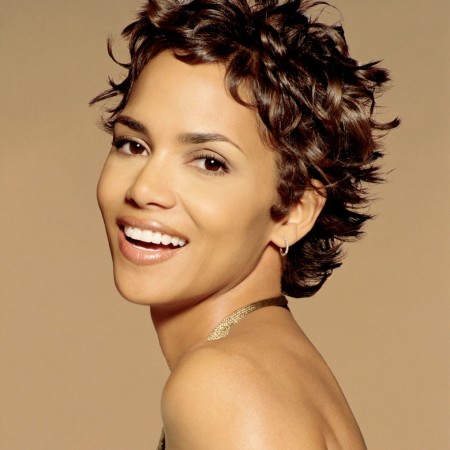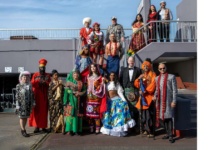I am writing this on March 25, 2015 – thirteen years to the day since Halle Berry became the first (and so far only) Black woman to win a Best Actress Oscar (for Monster’s Ball) – (Lupita Nyong’o was Best Supporting Actress). But it is an interview she has given to The Guardian that has brought her to mind.

The 48-year-old, who has a White mother and an African-American father, told the paper she has always had a hard time getting roles because she is Black.
Let’s pause on that for a minute. The Halle Berry phenomenon has always interested me because so many friends of mine have held her up as a beacon of Black beauty. My own contention has always been that we in Britain are so indoctrinated with the Western notion of beauty that we only see it in women (or indeed men) of colour when they are, but for their skin colour, indistinguishable from that ideal. Perhaps unfairly, I am unable to ‘own’ Ms Berry because I see a dark-skinned White woman.
I am tempted to go back to my 1960s childhood but, it turns out, I don’t need to because not much has changed. Whether it is in magazines, on TV or on product packaging and point-of-sale advertising, the benign, smiling, flawless face staring back at your impressionable toddler is almost (because it’s 2015) invariably Caucasian. Believe me, 50 years ago there was no ‘almost’ about it.
Little wonder, then, that my concept of what constituted beauty seems, if I catalogue my relationship history, to have been shaped by what I was exposed to. Black women, such as my mother, sister, aunts etc. served a function and did so beautifully, but White women, it seemed, could be justified in my consciousness solely as a visual treat.
I never dated a White girl or woman until well into my 30s, but who I did choose to date is interesting. A list of light-skinned Black women enjoyed (I hope) brief dalliances with me early on in my unenlightened years, but of my four lengthy (more than five years) relationships, three were with South Asian women, endured under extremely challenging circumstances and ultimately doomed as a consequence.
Why, despite the difficulties I knew I would face, was I led down this masochistic route? I have never really known, but part of me suspects that women from the Asian sub-continent satisfied my desire to be with someone who shared my complexion and the issues it brings, but they also somewhat resembled the aesthetic ingrained in me subconsciously as positive from years of exposure to 1960s Camay ads.
Black women must know it. Those that dress to appeal to we men (ie, zero percent if they themselves are to be believed) seem keen to convey the notion that they have been blessed with flowing tresses instantly recognisable to someone accustomed to spending his working day behind a horse. When I think of sustainability in the Brazilian rainforests, what I’m actually thinking of is how many of that nation’s girls must be spending most of their lives bald to support the market for the infamous weave.
Black women (and men) have been employing sometimes brutal means to banish the natural kink that identifies them for a hundred years or more. The smells that evoke my childhood include my sister’s baking, my father’s new cars and burning from the hot comb my mother dragged through her hair every weekend as a prelude to a hairstyle no doubt redolent of a (white) Hollywood icon.
I admit I succumbed to the ‘jerry-curl’ craze in the late 70s until I was guilt-tripped into a reversal by an old flame, a half-Chinese Jamaican who, in the intervening years, had gone all ‘Angela Davis’ on me.
No doubt we will one day have cause to pause about putting chemicals in our hair of such strength that they are capable of changing its natural characteristics . . . . or so you’d think. At least hair regrows; it turns out that there are further boundaries to push in the form of products that permanently bleach skin. These are products widely advertised and used all over Africa and, make no mistake, available over the counter here in the UK.
So my instant retort to Ms Berry is along the lines: “you think you’ve got worries?” We are all human with human failings – movie directors no less so than the rest of us. Halle Berry is a latter-day Dorothy Dandridge or Lena Horne. They too made similar complaints but, with the benefit of the hindsight one hopes the spirit world bestows, both should now be able to see how much darker life could have been.
In short, Halle Berry’s contention, if true, spells death to the career aspirations of every would-be Black actress once the roles for slaves, crack addicts and sundry ne’er-do-wells run out. Maybe she should be thankful for small mercies.








